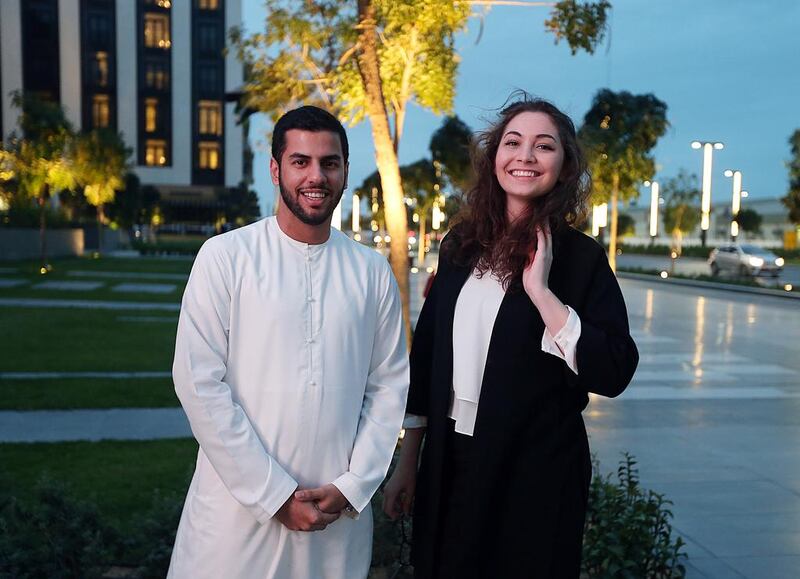ABU DHABI // Aspiring Emirati pilot Rashed Al Hammadi had to quit mental health treatment because of high cost, a lack of facilities close to his home, long wearying drives to Dubai for consultations and the burden of paying for medication.
It also cost him his lifelong dream of taking to the air at the controls of a plane.
Doctors say the UAE needs more psychiatric and rehabilitation services in the public and private sectors with one health professional calling for a tenfold increase in staff numbers.
The 22-year-old from Sharjah started seeing a psychologist in Dubai in 2013 and he was found to be suffering from anxiety and depression.
“The doctor was recommended by the family - my mother, in particular, because she was worried about me,” he said. “She was worried because I was always out of it and in my room. I was always distracted and not engaged with anyone.”
Mr Al Hammadi went online in search of support groups and clinics nearby at first.
“When we couldn’t find anyone, my mum recommended that I go to Dubai to see a doctor”
At the time, Mr Al Hammadi was in a training programme for pilots.
“The managers found out that I was getting psychiatric help and I was removed from the programme. They said I was medically unfit and that I couldn’t become a pilot as long as I was on psychiatric medication. My dream was always to become a pilot and it was pushed aside.
“I don’t think I am reliable and I worry that I might mess up. When you are a pilot, the lives of people are dependent on you and I guess this is safer.”
However, he has since stopped seeing his psychiatrist.
“I’ve been going for two-and-a-half years and its exhausting and too expensive for me. It was an hour-and-a-half drive and I pay Dh600 per session and that doesn’t include the medication.”
The cap on his insurance policy was exceeded a long time ago, Mr Al Hammadi said.
“I also have thiqa but that only covers Abu Dhabi hospitals and I can’t go all the way to Abu Dhabi. I don’t even know where to go now.”
After her battle with depression, 34-year-old Emirati Sarah Al Senaani started a support group.
“I was seeing a psychiatrist but I wanted to talk to someone who was going through the same experience I was going through,” said the Abu Dhabi resident. “I looked online and there were no support groups for depression.”
She launched Ostura, which is Arabic for legend, two years ago and, from only one member, there are now nine in the group who meet regularly to share their experiences and struggles.
“I couldn’t register it because I was told that I had to be a doctor,” Ms Al Senaani said.
The mother of three decided to go ahead with the support group regardless. “You need someone to talk to when you are suffering from depression or any mood problem and this what we do - we talk.”
Last year Ms Al Senaani also started the first workshop to “challenge mood disorders”. The two-week workshop teaches participants painting, mosaic and different types of art.
“I managed to register it and the purpose of the workshop is to challenge your mood disorders and feel better through art.
“Art helped me to combat my depression and I came up with 7 strategies that I believe can help overcome depression. I call them my pearls of happiness.”
The seven are: horseback riding; humanitarian work; art and music; cultural communication and research; tourism; healthy nutrition, and cognitive behavioural therapy.
“No one seems to care or want to admit that they have a mental illness but I don’t care what people say. I care and I want people to know that they are not alone,” said Ms Al Senaani.
salnuwais@thenational.ae






